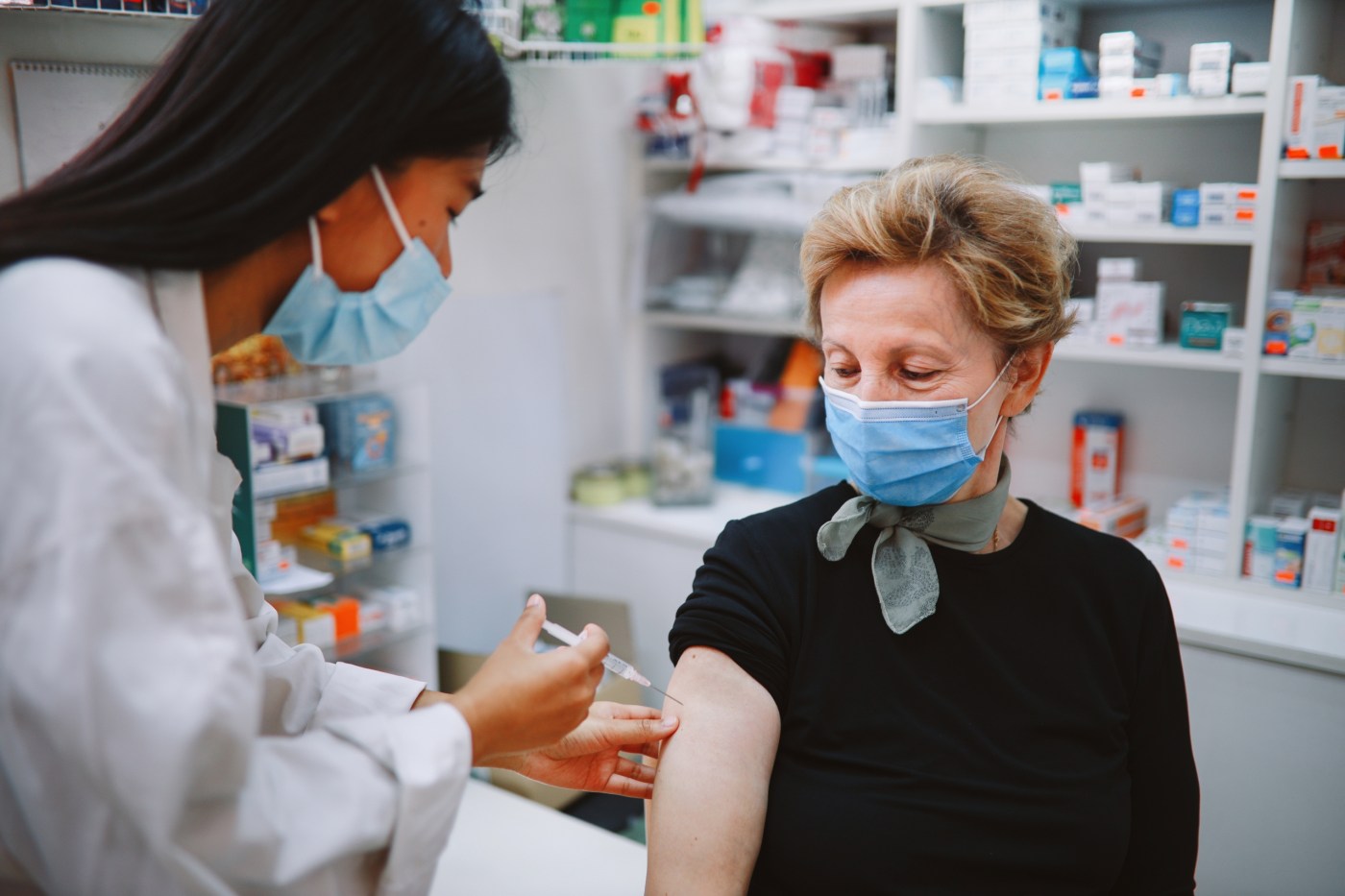In the first head-to-head comparison of the effectiveness of the Pfizer-BioNTech and Moderna COVID-19 vaccines, researchers examined the electronic health records of Veterans who had received each vaccine. Both vaccines were highly effective in preventing COVID-19 outcomes such as documented infection, hospitalization and death.
However, the Moderna vaccine was found to offer an increased level of protection, including a 21% lower risk of documented infection and 41% lower risk of hospitalization, according to the research team, whose findings were published on December 1, 2021, in the “New England Journal of Medicine.”
“Both vaccines are incredibly effective, with only rare breakthrough cases,” said Dr. J.P. Casas, a member of the research team made up of experts from VA, the Harvard T.H. Chan School of Public Health, Brigham and Women’s Hospital, and executive director of VA’s Million Veteran Program for genetics and health research. “But regardless of the predominant strain – Alpha earlier and then Delta later – Moderna was shown to be slightly more effective.”
Research focuses on Alpha variant
Researchers designed their comparative effectiveness study to address the previously unanswered question of which of the two mRNA vaccines is more effective. Effectiveness was measured in terms of five COVID-related outcomes: documented COVID-19, symptomatic disease, hospitalization, ICU admission and death. The investigators relied on the electronic health records of U.S. Veterans who received one of the two COVID-19 vaccines between early January 2021 and mid-May 2021.
As initially designed, the research focused on the Alpha variant that predominated at the time. The study matched 219,842 recipients of the Pfizer vaccine to the same number of recipients of the Moderna vaccine. The two groups were matched based on a variety of clinical and demographic factors that could affect outcomes.
Over the study’s 24-week follow-up period, the estimated risk of documented infection was 4.52 events per 1,000 people in the Moderna vaccine group and 5.75 per 1,000 in the Pfizer group. This represents an excess of 1.23 cases of documented infection per 1,000 people in the Pfizer group. The investigators also observed an excess of symptomatic COVID-19 (0.44 events), hospitalization (0.55 events), ICU admission (0.10 events), and death (0.02 events) per 1,000 people in the Pfizer group relative to the Moderna group, but these differences were smaller.
Either vaccine is recommended to anyone offered a choice
This pattern of a lower risk for Moderna held up in an additional phase of research covering a time frame with Delta as the main strain. In this comparison, excess risk of documented infection over 12 weeks was 6.54 events per 1,000 people for the Pfizer vaccine, compared to Moderna. Given the shorter time frame available for this supplementary research, infection was the only outcome researchers analyzed. Also, the estimates were considered less precise because a smaller number of individuals were eligible for this analysis.
Randomized trials comparing the mRNA vaccines against placebos had previously shown both vaccines to be very effective against symptomatic COVID-19 infection (95% effectiveness for Pfizer-BioNTech, 94% for Moderna), and similar benefits were observed in real-world vaccine use.
“Given the high effectiveness of both the Moderna and Pfizer vaccines, confirmed by our study, either one is recommended to any individual offered a choice between the two,” said the study’s first author, Dr. Barbra A. Dickerman, an epidemiology instructor with the Harvard T.H. Chan School of Public Health. “However, while the estimated differences in effectiveness were small on an absolute scale, they may be meaningful when considering the large population scale at which these vaccines are deployed. This information may be helpful for larger decision-making bodies.”
More Information
Click here to read the full story.
Click here to read more about VA COVID-19 research.
Click here to learn more about VA research.
Topics in this story
More Stories
VA's contact centers have moved to the cloud to boost resilience of critical Veteran-facing platforms, cut costs, and drive exceptional service to Veterans.
This week, VA’s Office of Research and Development (ORD) published three new articles spotlighting research that advances care for Veterans in heart health, mental health and health-system navigation.
Nearly 400 Veterans from across the country have gathered in Snowmass Village for the 39th Annual National Disabled Veterans Winter Sports Clinic. This premier adaptive rehabilitation event, co-presented by VA and Disabled American Veterans (DAV), continues through April 5.





